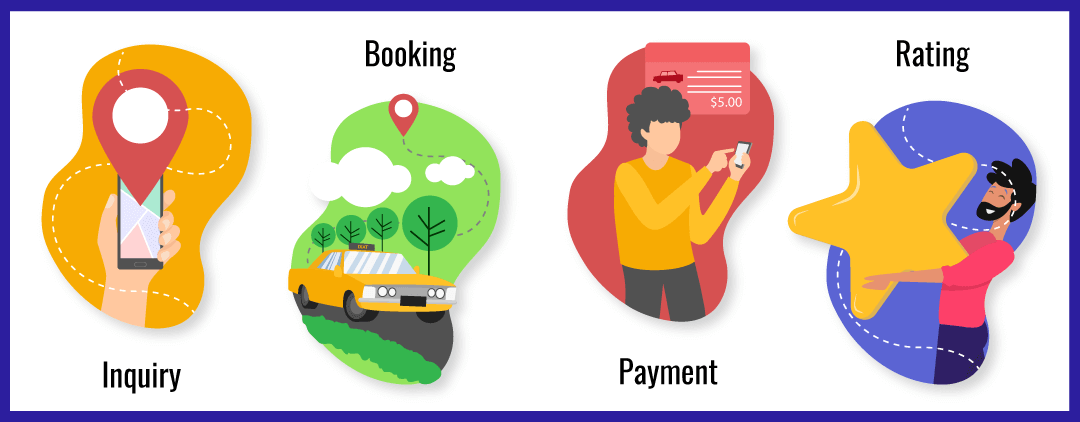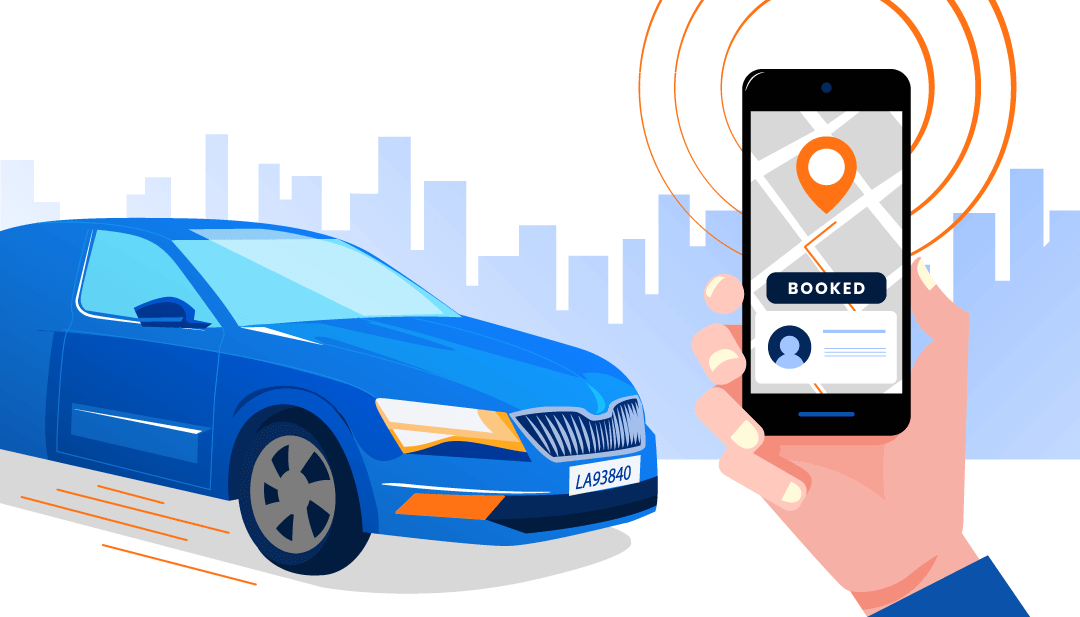
How Much Does It Cost To Create Rideshare App?

Milan Koradiya
6th Nov, 2020
Looking at the unprecedented growth of the rideshare app market across the globe, you cannot turn your head away from the huge revenue the top ridesharing companies are generating these days.
Garrett Camp and Travis Kalanick, who developed Uber app, envisioned Uber as just a small idea that grew into a million-dollar business over the years. The growth does not end here. The ridesharing business is expected to grow multifold in the years to come, and generate much higher revenue in the forthcoming years.
You must be intrigued about the gigantic ridesharing app business, wanting to get your feet wet in the niche, but do not know where to start from. Worry no more as below you will find everything that you need to know about creating a rideshare app, the exact cost structure, and the complete ride-sharing business model, aiding you to kickstart your ridesharing business.
How Does Ridesharing Apps Work?
The working model behind uber-like apps for services is basic and understandable. There are majorly four steps in the working of ridesharing apps.
Inquiry:
Firstly, the passenger requests going to a destination and submits his current location to the app.
Booking:
After checking if the service covers the enquired route or not and if there is a cab somewhere near the pickup location, a cab is booked by the app.
Payment:
The app calculates the amount to be paid at the start of the ride and shares it with the passengers, and the cab driver.
Rating:
In the end, the app asks the passengers to rate and review the ride, and the cab driver as well.
How Long Does It Take to Build A Ridesharing App?
The time consumed to build a fully functional ride-sharing app, considering the backend and frontend, depends on the number of features you want to integrate into your application. More is the number of features, better is the user experience, and more time is consumed to complete the app.
Also, depending upon the targeted platform, the time taken to build a ridesharing app varies. For instance, the time taken to develop the booking history section of the application for Android is 40 hrs approximately, while for the iOS platform, it takes somewhere between 16-32 hours. Considering the foundational functionalities, the total number of hours to develop an application for iOS or Android are, and design the backend are:
- 304-408 hours for the development of ridesharing applications for the iOS platform.
- 368-432 hours, if the app development is for the Android platform.
- 160-200 hours separately for designing the backend of the app.
- A considerable time of approximately 350 hours goes into the development of the Admin Control Panel.
At Auxano Global Services, our readymade ridesharing clone solutions can reduce the overall development time of any kind of rideshare app development.
Frequently Asked Questions
 What are the most popular ridesharing apps worldwide?
What are the most popular ridesharing apps worldwide?
 How does ridesharing apps work?
How does ridesharing apps work?
 How much does it cost for a rideshare app development?
How much does it cost for a rideshare app development?
 How long does it take to build a rideshare app?
How long does it take to build a rideshare app?
 Which is the best Rideshare app development company?
Which is the best Rideshare app development company?
 Do you provide maintenance and support after cab booking app development?
Do you provide maintenance and support after cab booking app development?
 Where can I go for more information about rideshare app development?
Where can I go for more information about rideshare app development?
About The Author

Milan Koradiya
As the Android Team Lead, Milan Koradiya possesses immense expertise in Android app development. He is a creative thinker and holds a great vision when it comes to planning a project. His management and technical skills have been a significant contribution to the company. He has an all-embracing hands-on experience in trending technology as well, such as Flutter, Kotlin, Xamarin, React Native, and Ionic.


